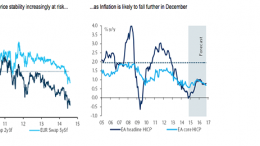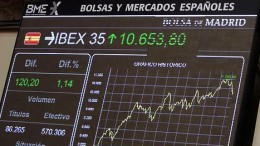“No need for unanimity” for QE
MADRID | The Corner | The ECB avoided taking any new measures to fight stagnation in the eurozone, although its growth forecast is significantly lower than 3 months ago. As Mario Draghi announced on Thursday, the Frankfurt-based institution intends (he said, using that word instead of ‘expects’) to expand its balance sheet by $1Tr, yet it won’t act before 2015, as many were expecting. A sovereign QE, despite the Bundesbank’s opposition, is a closer possibility, but the Governing Council will wait until next year to assess the impact of the existing policy measures and of falling oil prices.





